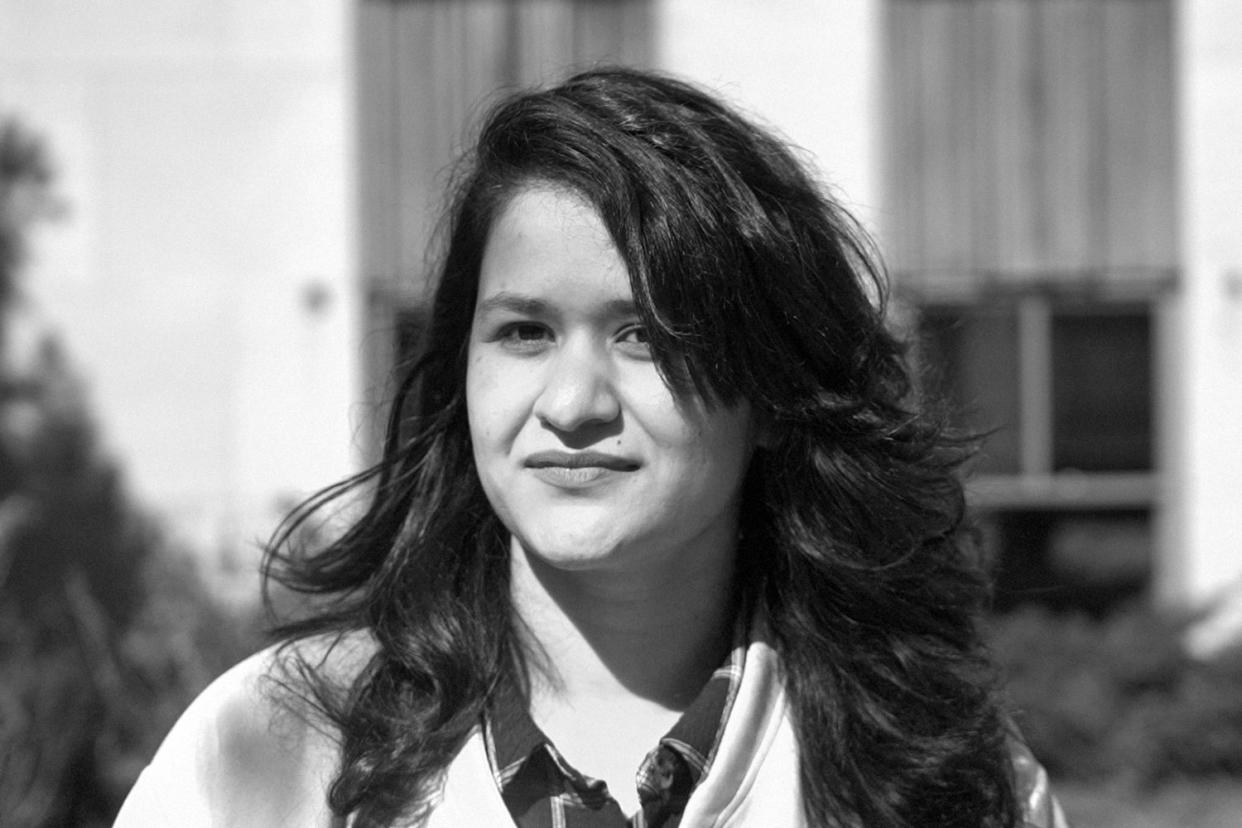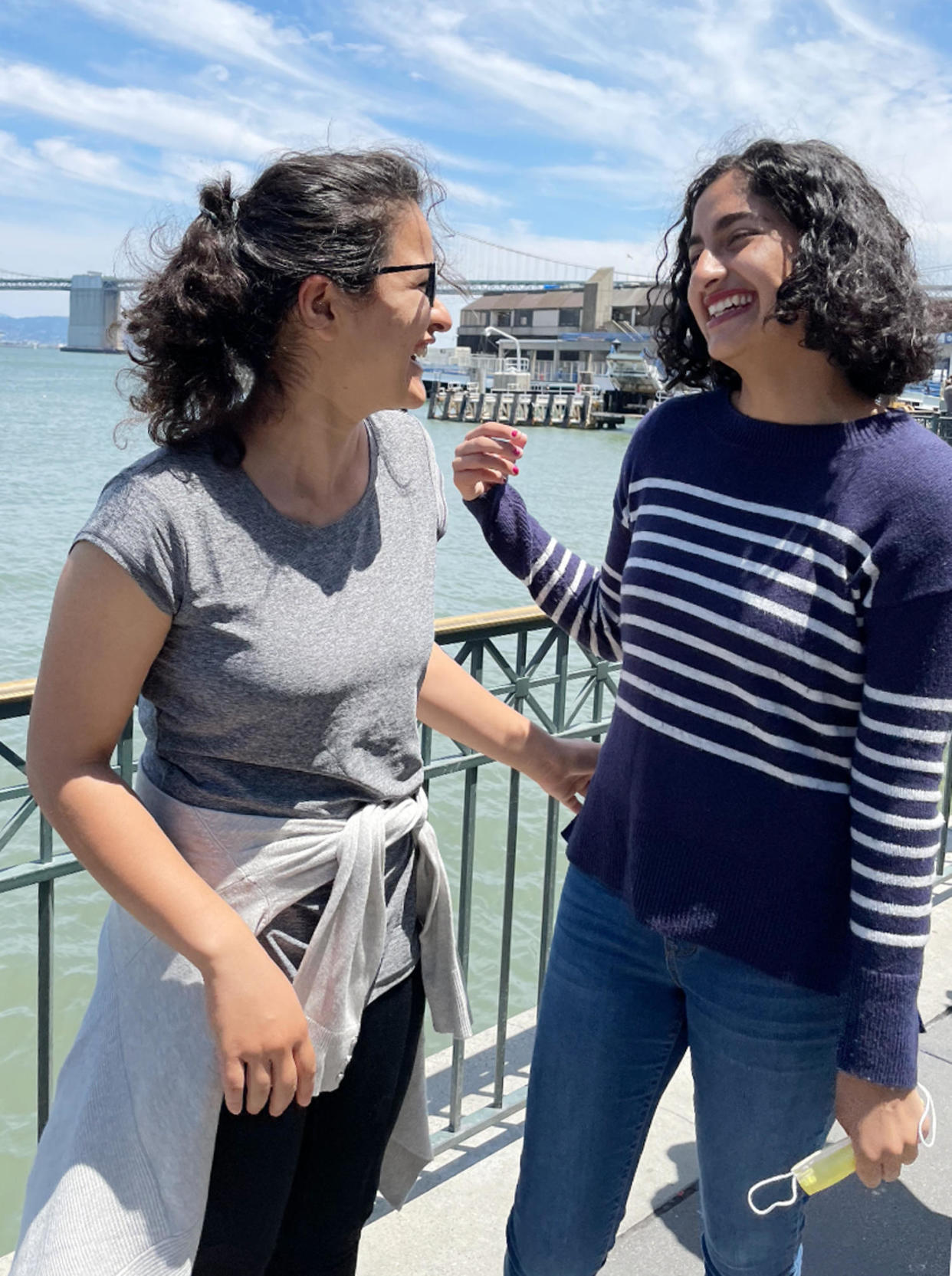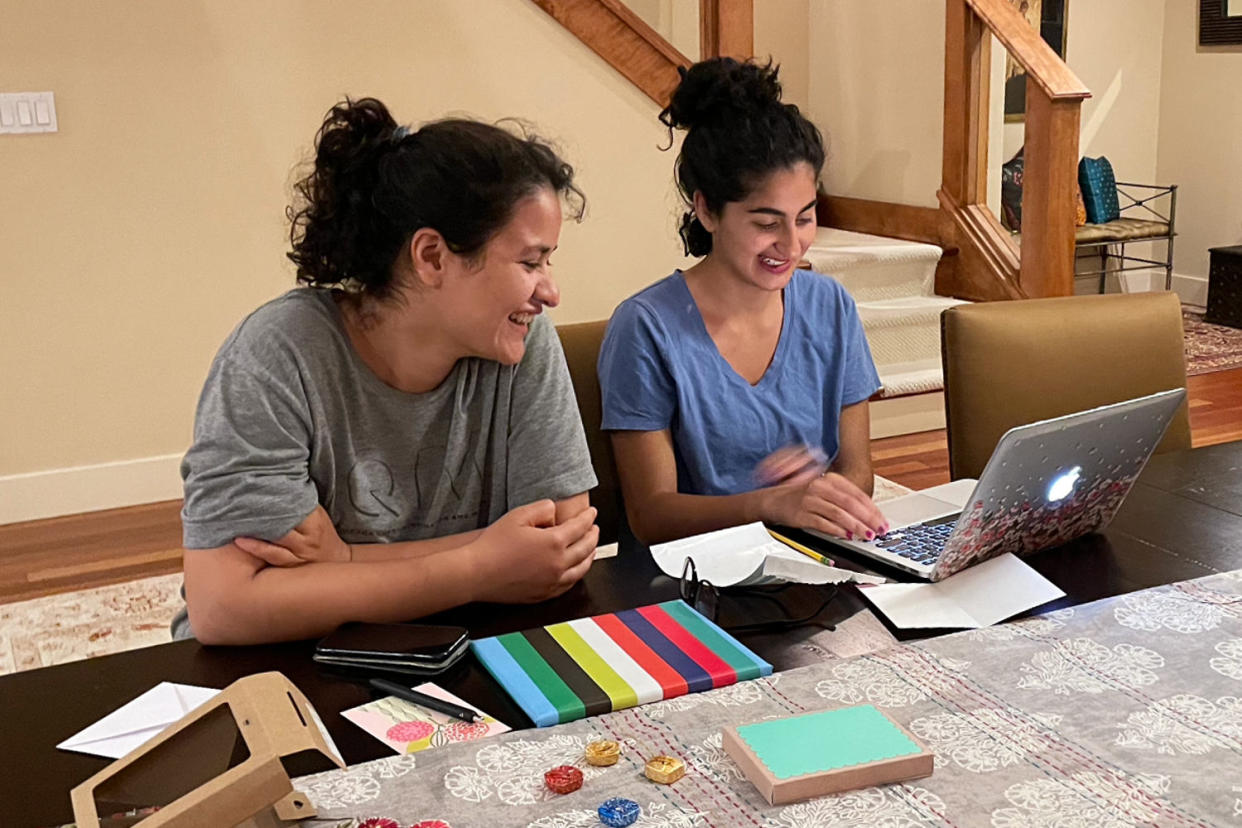She secretly educated herself to escape Afghanistan. Now, she's working to help women still there
Sola Mahfouz stopped going to school in 2007 when she was an 11-year-old living in Afghanistan.
“A group of men, they came to our door and threatened my father, that if you continue to go into school, they will throw acid on our face or kidnap,” she recalled. So she spent years confined to her home doing domestic chores.
“Over the years, I left home only a couple of times a year and, whenever I did, I had to wear the suffocating burqa that covered me from head to toe,” said Mahfouz, who uses a pseudonym to protect the safety of her family members who still live in Afghanistan. “But, meanwhile, my brothers were going to school and they were thriving academically, and I felt jealous of their lives.”
Once her chores were done each day, she embarked on a secret mission to educate herself. She spent almost six years teaching herself English and math online and eventually made her way to Arizona State University for college.
Today, she works as a quantum computer researcher at Tufts University.

Mahfouz, 27, also is working to bring awareness to the plight of Afghan girls three years after the Taliban officially banned them from attending school beyond sixth grade.
The school year in Afghanistan began this month without the 1 million girls estimated to be barred from school since the Taliban returned to power following the 2021 withdrawal of U.S. and NATO forces.
“Afghanistan remains the only country in the world where women and girls are not allowed to attend secondary and higher education,” said Fereshta Abbasi, an Afghan researcher working with Human Rights Watch. Abbasi, who is currently living in exile in the United Kingdom, says women have been banned from almost all aspects of public life in Afghanistan.
“Women do not have the right to freedom of movement. They need to be accompanied by a mahram, which is a male blood-related member of the family,” she said. “Women do not have the right to protest. No right to freedom of expression, no right to assembly.”
Those are all things Mahfouz experienced as a child even though the Taliban was not in power when she grew up there.
“When I was 16 years old, I did not even know how to subtract. And that was, because when I was 11 years old, I was forced to stop going to school,” she said.
Mahfouz recounted her determination to educate herself, her decision to leave Afghanistan and her harrowing journey to cross the border into Pakistan in her 2023 memoir, “Defiant Dreams,” which she co-wrote with Malaina Kapoor, a student at Stanford University who advocates for human rights.

“I remember when we were writing the book, and I was working on those chapters, I would call her over and over, because I would say, ‘I just don’t understand how this is possible. How could you remain so driven?’” Kapoor said of Mahfouz. “But I think what I eventually realized is, there was such a level of desperation because that knowledge really meant the difference between a future within the compound walls that she had always lived in, and a future that might have meant something more,” Kapoor said.
The two have again teamed up with the hope of improving the future of other girls in Afghanistan. They are in the brainstorming phase with the educational organization Khan Academy to develop resources for women in Afghanistan. Mahfouz used a temperamental internet connection, laptop and free online resources like Khan Academy when she taught herself.
“We have been in the brainstorming process to create a digital space where women can gather, they can read, they can share stories they can write ... because you can’t just give a woman a computer, you can’t just tell them, ‘OK, just go online, and just like learn.’” Mahfouz said, “Afghan culture is very social … So how can you have that social environment where they can support one another, be safe and learn?”
Kapoor, 21, and Mahfouz are also creating an educational curriculum for teachers to educate American children on the challenges happening in Afghanistan today using their book to guide discussions.

They have been invited to participate in programs by the United Nations for Women’s History Month and beyond to continue advocating for the rights of Afghan women.
Mahfouz has also been able to teach some of her younger relatives in Afghanistan who are impacted by the education ban.
“I’ve been helping them with English,” she said, “I have been reading books to try to communicate with them and educate them about the resources that are available.”
Ultimately, the duo said their goal is to continue elevating the stories of the girls and women in Afghanistan.
“Every day in Afghanistan, there are millions of human rights violations against women and that’s something that women around the world, but also everyone around the world, should feel very, very deeply,” Kapoor said, “And so, our mission is to bring these stories through our work with the U.N. through our work with schools and building curriculum to educate as many people as we can.”
CORRECTION (March 26, 2024, 6:53 p.m. ET): A previous version of this article misspelled the first name of an Afghan researcher. She is Fereshta Abbasi, not Fareshta.
